What are the roles cast in a Narcissist family? Have you ever heard of the terms golden child, scapegoat, etc, and most of the time, why family scapegoats become lifelong victims?
Note: This article uses male gender pronouns for “the narcissist”. Both men and women can be diagnosed with Narcissistic Personality Disorder, but it is more common in men.
Narcissistic Personality Disorder (NPD) is a parasitical disease that affects those especially close to the narcissist. His uses his suave and charming personality mixed with cunning manipulation in order to move around pawns in a game whose only objective is to glorify himself, the gamekeeper.
Related: Narcissistic Personality Disorder: Who Is A Narcissist And What Makes One
There are small moments when the narcissist’s mask falls off around friends, acquaintances, and family, usually in a spurt of anger or debate where the personal offense has been taken. But generally speaking, the only people who will see the real narcissist without a mask will be those who are a part of his innermost circle.
Who is in this innermost circle?
They are the people who he believes that he owns (this ownership can be conscious or subconscious). His roommates and close friends rarely come close enough to experience consistent abuse because he can separate himself and take breaks from his act.
But long-term lovers, spouses, and children become the most valued pieces in his collection because he sees each one of them, especially his children, as an extension of himself. He interacts with them frequently.
In a healthy household, parents will raise their children to become confident, independent, and healthy adults. No household and no parent is perfect, but healthy children develop a balanced sense of self and their relationships evolve with the adult figures in their life. This is not the case with a narcissist’s family.
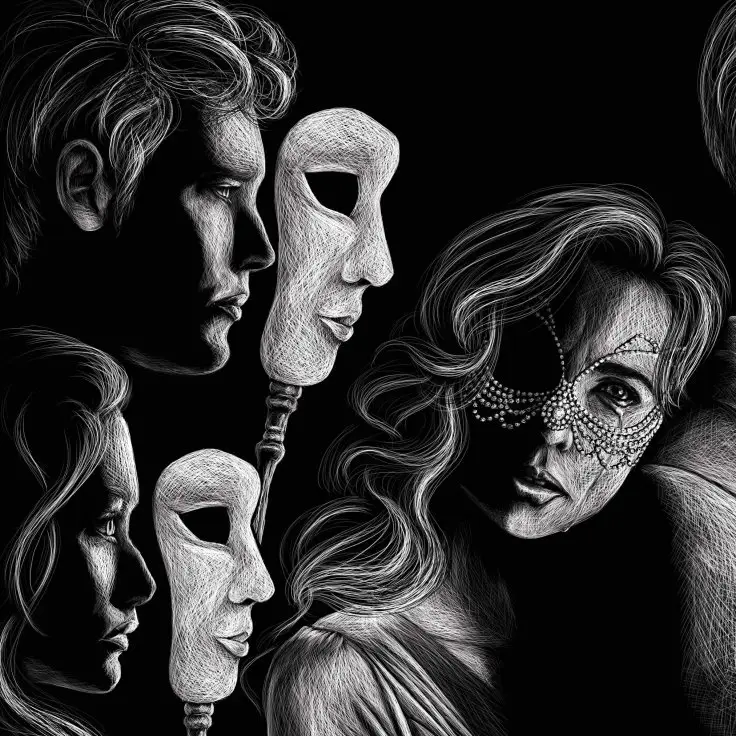
A narcissist’s only mission in life is to paint a grandiose representation of himself to the world. And because the narcissist sees his spouse and his children as an extension of himself he trains them and uses them as a status symbol beneath the guise of a loving and caring family.
The most important thing to a narcissist is to maintain the image of success. If you are part of his family you will be given a role to play and it will be your responsibility to act your heart out in public.
There are only two rules in the house of a narcissist’s family:
- the narcissist needs to always come first
- the image of the narcissist and his family must never be limited by the needs of the spouse and their children
Every spouse and child is assigned a role by the narcissist himself. These roles include the golden child, the scapegoat, and the invisible child. Over a period of time the children adopt secondary roles that include the hero/responsible child, the caretaker/placater, the mascot/clown, and the mastermind/manipulator.
Children may end up adopting one or more of these roles, and roles can switch multiple times over the course of one’s life, depending upon how the narcissist feels and how he measures that child against the others. He also weighs them with consideration to personal goals at any given moment.
The bottom line is that a narcissist would rather gloat about himself to try to impress a stranger rather than be loved by his own family. All the while, his children, forever starving for love, bend over backwards to try to scrounge for breadcrumbs of his approval. In public they wear the happy masks that he has made for each one of them.
The Roles Cast by the Narcissist
1. The Enabler –
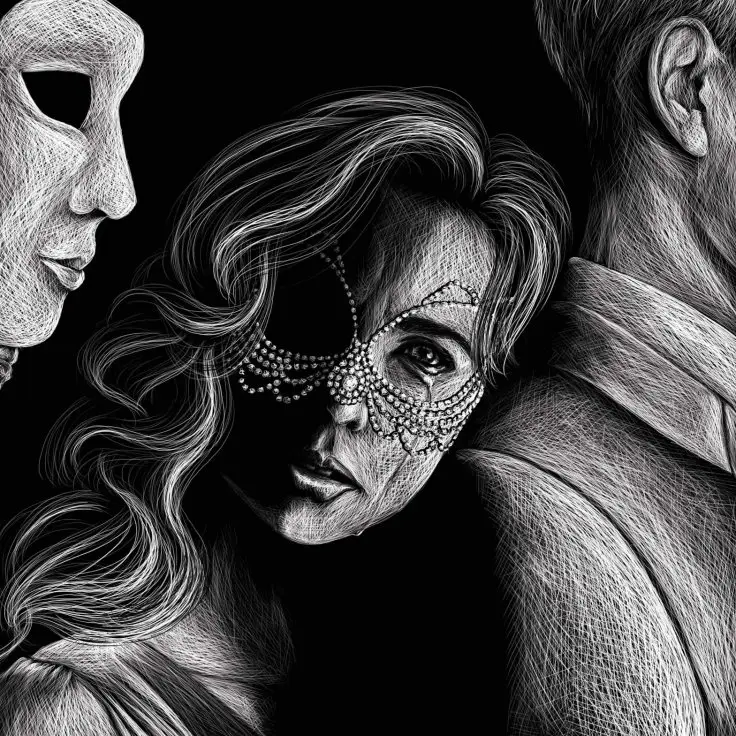
This role is usually played by the spouse (or a daughter). She does the narcissist’s bidding and plays nice in order to gain approval from the narcissist. She orbits around when she is not helping him. Her life revolves around fulfilling every need of the narcissist. This is a role typically filled by a codependent individual, who grew up in an abusive home, and whose sense of self revolved around giving up herself in order to win love and favor from people around her.
Related: Narcissistic Cult: The Roles We Play In A Narcissist’s Life
There are many cases where a codependent spouse realizes the error of his or her ways after being married to a narcissist for so many years. She comes to a breaking point and realizes the damage that has been done to the children because of her own irresponsibility and her own brokenness. But when that moment of realization hits, she can do nothing but sit back and watch her damaged children perform for her abusive spouse; she can only hope that her children will discover their own brokenness much earlier than she had.
2. The Golden Child –
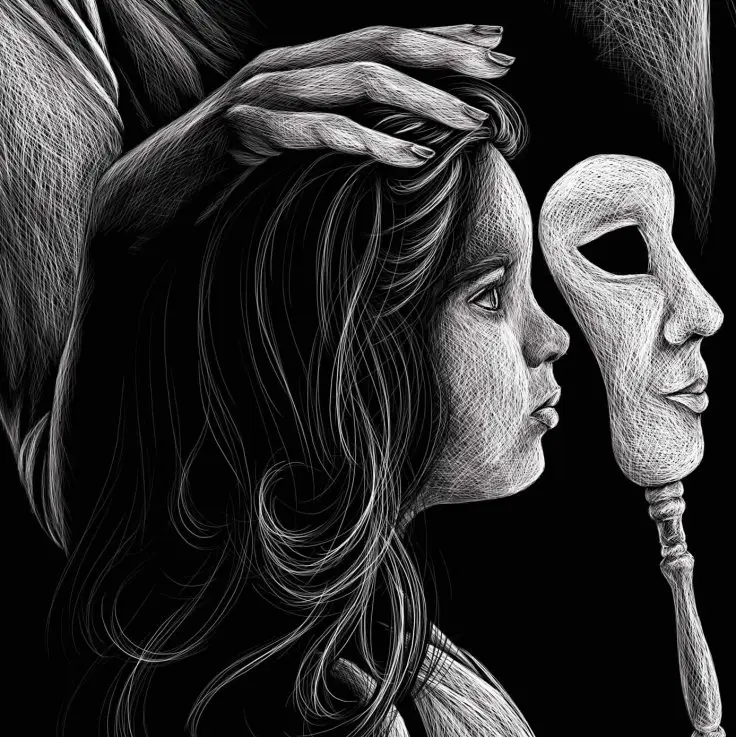
She is assigned her role according to her gifts and talents. This role could be set aside for the first or second child but as the narcissist’s children are born, or as his children leave the household, the role can shift to other children. This child is given special treatment and the narcissist seems to value this child the most.
He will train this child so that she can act out the perfect masquerade of his perfect parenting. Most of the time the child will become a clone of the narcissist, adopting his beliefs, habits, and if this child stays in this role for their entire adolescence, it is likely that this child will also become a narcissist.
But if the role ever shifts and the golden child is “demoted” (even if she is tossed in and out of the role) it is likely that the child will develop codependency, instead. Because the narcissist and the enabler put this child on a pedestal they also form a different bond with her than with the rest of the children. Her siblings become jealous of the special treatment that she has been given, but in the long run this could be the most damaging role among the children.
Related: The Golden Child: How They Are Created In A Narcissistic Family
It will be harder for her, as an adult, to separate herself and find her true self apart from her parents. She becomes an extension of their relationship and the most puppet-like of the children. Unless she is able to acknowledge the abuse and heal from it she will keep running in unfulfilled abusive circles, searching for love and fulfillment, but always falling short.
3. The Scapegoat –
This child is the one who can do nothing right. They are labeled a “bad seed” and tend to be the most outspoken of the children with a “look at me” persona. The narcissist will use this child as a punching bag, and they will be the recipient of the most abuse among the children. The scapegoat and the golden child seem to be at odds with each other most of the time. The children understand that the narcissist’s affections are given ‘freely’ to the top performing child, so the scapegoat tries to dethrone the golden child in order to win the love and affection of the narcissist, unaware of the toxicity of the coveted role.
The scapegoat is most likely to develop a sense of self and awareness, but it will be damaged. They will probably be successful and independent later on in life, driven by a need to succeed and to prove themselves worthy of love, but they will still need to address the childhood trauma that went on in their household in order to heal from the abuse.
Related: Why Family Scapegoats Become Lifelong Victims.
4. The Lost Child/Invisible Child –
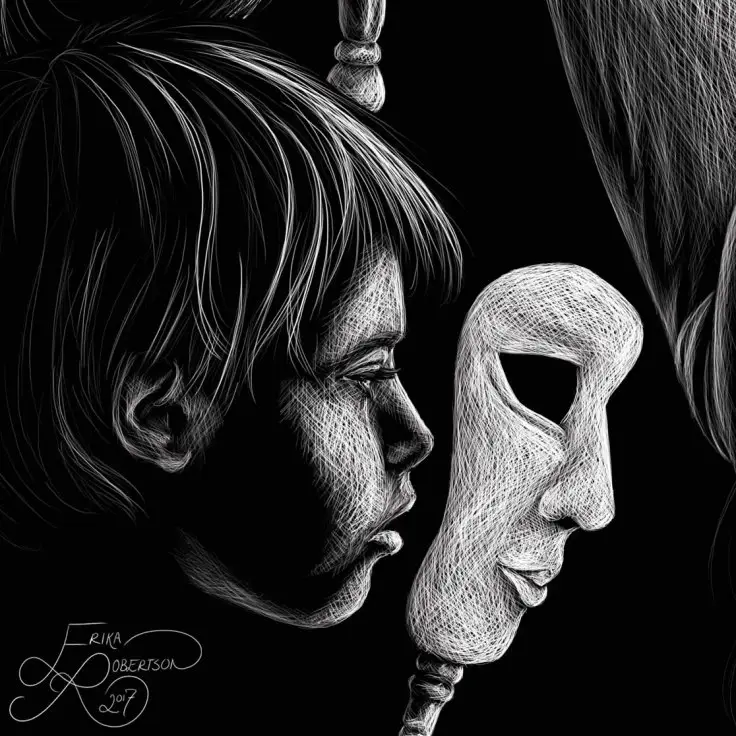
He receives no praise and no blame from the narcissist. In the narcissist’s eyes, there is “no use” for him. The lost child becomes very independent, isolated, and lonely. A lot of the time they do become self-sufficient but they fall prey to emotions of unworthiness and they constantly feel unloved throughout their lifetimes. These children are most likely to develop depression or substance abuse addictions.
The Secondary Roles Taken by the Children
1. The Hero/Responsible Child –
Most of the time this is the older sibling, but not always. This child takes on a perfectionist nature at a very young age and develops a “responsible parent” role. She is a true mask of a narcissistic family. She suppresses her emotions until she cannot feel them at all, she is extremely insecure, and she drives herself compulsively from one achievement to the next.
2. The Caretaker/Placater –

She is the emotional rescuer of the family. She manages and shuffles around the ever changing moods of the family by listening, supporting, nurturing, and counseling. She is a very sensitive creature, calm, and understanding in nature. Although she tries to fix everyone around her, she seeks no emotional support for herself. She doesn’t know how to take care of herself, she only knows how to focus on everyone else. She is a people pleaser.
Related: Can You Love Too Much? Codependent “Caretakers”
Her self-worth is defined by what she can do for others. She gives love but she doesn’t know how to receive it back. She is only comfortable giving she is not comfortable receiving and as a result she will push away love. As she grows into adulthood she finds that her job is to fix and save people from themselves. She turns into a ‘grade A’ codependent person, whose relationships become one-sided, toxic, and abusive. She becomes a doormat for people and will usually choose a career in the caring profession.
3. The Mascot/Clown –

This role is usually adopted by the youngest member of the family. He is responsible for the emotional well-being of the family but through the use of humor as opposed to care taking. He puts on a comedy show to divert the pain in the family. He is usually a happy-go-lucky person and a very likable individual who can make others laugh but who finds it difficult to make himself genuinely happy. He will usually suffer from depression. Because he is constantly putting on a show he doesn’t really develop any sense of authentic self and he struggles with feelings of emptiness and loneliness.
4. The Mastermind/Manipulator –
He is sinister, selfish, and abusive. Paired with the golden child the role, the mastermind and manipulator will turn into a narcissist. He is driven by entitlement and coerces people through manipulation. He is sneaky enough to operate just below the radar and he uses the dysfunction and the rest of the family to his own benefit. He intentionally creates conflict among family members to get what he needs and what he wants. He knows how to put on the charms and can manipulate even the adults in the family. He can also take on the quality of a sinister jokester, echoing the words “What’s the matter? Can’t you take a joke?”
Related: 6 Tactics Manipulators Use To Control And Confuse You
“The Narcissist’s Family”
My piece is called “The Narcissist’s Family” and it was important to me to try to capture the feeling of being a game piece in a narcissistic family unit.
Children will grow up not being able to measure feelings in a healthy manner, or they develop a numb persona. Sadness and depression will develop later when they are aware enough to piece the abusive puzzle together.
The golden child is brought into the limelight alongside the narcissist, with help from the enabler whose eyes are finally starting to see the truth of her lifestyle and her role in the abuse. She wonders if it is too late. She wonders what will happen to her children and to herself. She wonders if there is any hope for healing and happiness. The rest of her children will shuffle around in the shadows and wait for the beckoning calls of the game-keeper narcissist that shift at a moment’s notice.
As long as his family plays each part perfectly they will be okay. They just need to avoid any action or phrase that will tarnish the image that he works so hard to maintain.
It is rare for a narcissist to raise another narcissist.
There have been theories that have been thrown around about narcissists breeding people who are equally as abusive, but studies show that if you have been raised by narcissist you’re much more likely to develop codependency.
A narcissist’s upbringing is centered on the idea of selfishness, and in his adult life he will search for people to aide him in building his grandiose pedestal. A codependent’s upbringing is centered on the idea selflessness, and in her adult life she will search for people to pour out her love to, in hopes that she will be loved in return with that same sacrifice that she so foolishly gives.
Related: Can A Person With Narcissistic Personality Disorder (NPD) Have A Good Marriage?
When the two get together, it seems like a perfect partnership at first glance. To onlookers they are glorious, beautiful, and perfectly balanced. But, when one partner only gives and the other only takes, the fairytale love story falls into the cauldron and transforms into a poisonous apple…
Follow “Art With Erika” on Facebook

Written By Erika Robertson
Originally Appeared On Art with Erika
Related video:
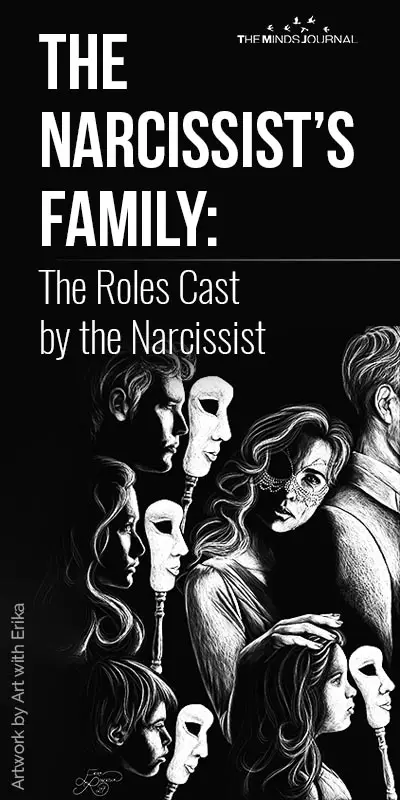
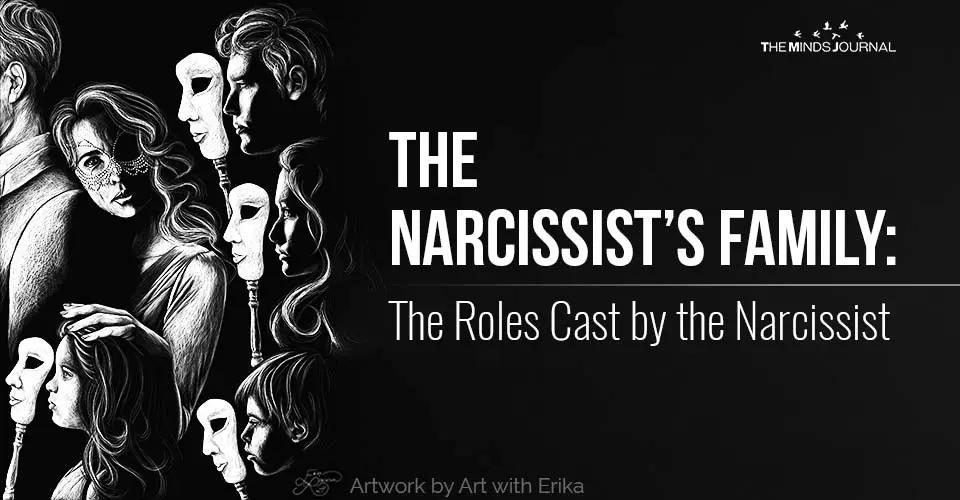









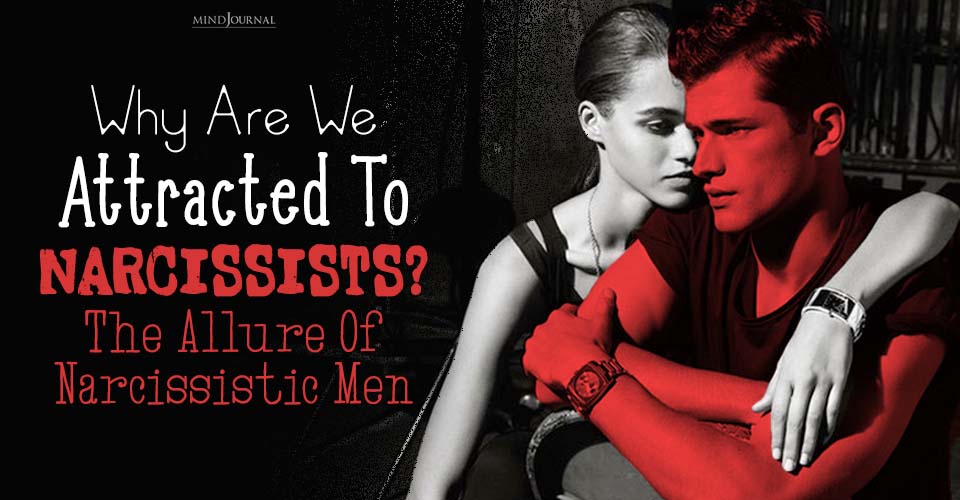
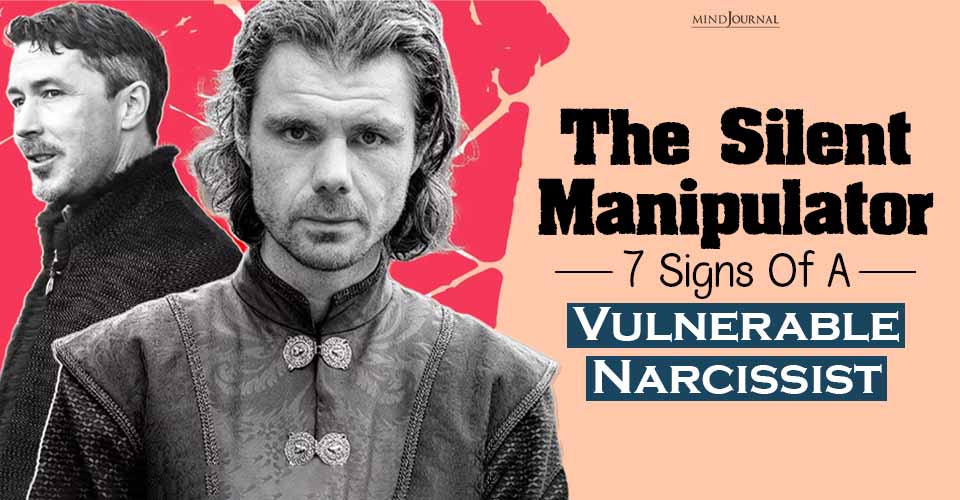

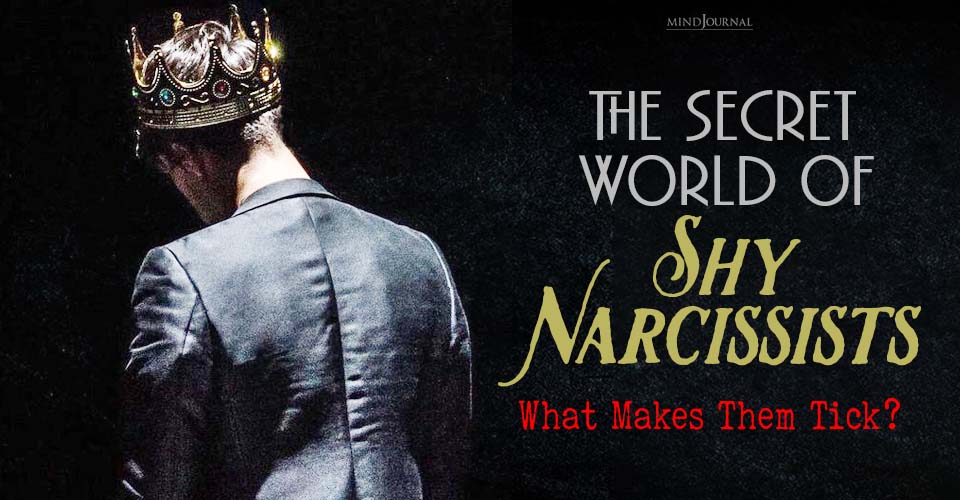
Leave a Reply
You must be logged in to post a comment.